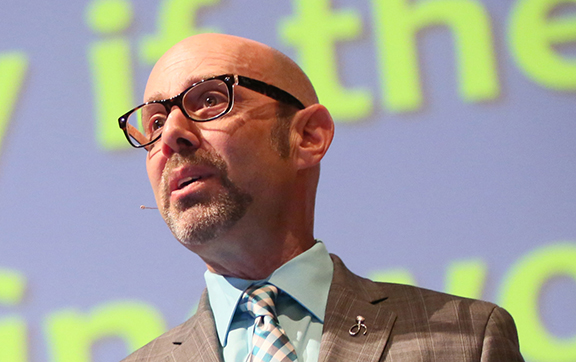One of the most misunderstood aspects of the sales process is the objection. Those of you who are not natural sales people hate objections. You see them as roadblocks to getting the sale.
I’m asking you to see them differently. Here’s an example: If a client tells you what they want—and you give them a price and make the sale without getting any objections—you didn’t really make a sale, you took an order. This is what happens in most retail stores, grocery stores, etc. You pick out what you want and pay for it at the register. Someone may have opened a dressing room for you or merchandised the product for ease in finding, but there’s no real selling involved.

Objections are buying signals & opportunities
However, if you go through your sales pitch and you give them the price—and then they voice an objection, a question, a “what if…” or a “but…”—that’s when the selling starts. Objections are buying signals and opportunities. If they weren’t interested, they wouldn’t bother asking the question or voicing the objection. When they say “what if….” or “but…” they’re really saying, “I’ll be closer to buying if you answer this well.” It’s really just a mindset shift to see these as opportunities. If they weren’t interested, you never would have gotten the inquiry, no less the appointment. If they weren’t still interested they would have either stopped replying to emails or would exit the appointment.
Even price objections are buying signals. They’re signaling that if you can show them the value, or another option, they might buy. Again, if they weren’t interested, the sales process would just stop. But it isn’t stopping. They’re hanging in there with you. I’m not saying you need to lower your price to get the sale. Do not lower your price without getting something of value in return.
Agree when they disagree
One of the best ways to diffuse an objection is to agree with them. If you’ve tried to close the sale and they say “We want to go home and think about it,” you can say, “Of course you do. I wouldn’t expect you to make such an important decision at our first meeting.”
However, if you hear this often: “You’ve given us so much to think about, we need to go home and process it,” that’s your fault, not theirs. Your job is to help them reduce the choices to only the most appropriate, not confuse them with everything you offer. No one needs everything you offer, so listen first, and then pitch the proper products and services.
Feel – Felt – Found
One of the best ways to handle most objections is with a process that I heard many, many years ago. I’ve tried to find the origin, but even Google can’t help me. If you do a Google search for Feel – Felt – Found you’ll get over two million results, but none that I’ve seen give the original source. It’s so simple, yet so effective.
There are three parts:
Feel – Empathize with their situation, as in “I understand how you feel”
Felt – Show them that others, just like them, have had this same thought
Found – What you want to say to overcome the objection, but doing that right away would be more confrontational.
Here’s how this works with real objections
Objection: “You’re the first caterer we’ve seen. We need to look around.”
Response: “I understand how you feel. Many other couples we’ve worked with have felt the same way; that they need to do an endless search. What they found is that, like you, they had already done a lot of research online, and knew what they wanted before they got here. Once you find it, you buy it, even if it’s the first place you’ve been. Why keep looking when your must-have list is covered? And that’s why so many couples buy from us on their first appointment.”
Objection: “That’s more than we wanted to spend.”
Response: “I totally understand how you feel and I know how expenses add up for weddings. I had a couple in last week that felt the same way. They found that there were things they hadn’t thought of when they made their budget, and there are other items they could save on. They went with us because they didn’t want to look back after their wedding and think they skimped on their catering.”
There are countless ways to word Feel – Felt – Found. I want to give you a foundation for coming up with your own wording; phrasing you’ll feel comfortable using in real sales appointments. Play around with this and you’ll find that it’s almost magical how well it works. It’s a much softer, more comfortable process for both you and your couples.
When they come back
When your customers go looking around and then come back to you with, “We found a lower price with another vendor,” what they are really saying is, “We want to book with you, but this lower price is making us confused.”
Think about it: if they had found everything they want and need—including a lower price—why didn’t they book that other caterer on the spot? It’s because they really want you to cater their wedding. You don’t have to match the price to get the sale. You have to remind them of the value of choosing you over anyone else. You can certainly use Feel – Felt – Found here: “I understand how you feel, and thanks for coming back. We’ve worked with other couples who have also looked around and received lower bids. What they have all found is that a lower price is easy to find, but it’s not the price or the equipment that will make your wedding great, it’s the people behind it that make the difference. That’s why they sign with us, at our price.”
Or you can try, “If price is the most important factor when choosing your caterer, then I’m not going to be the right choice. Couples like you don’t choose me because they want the lowest price; they choose me because they want (fill in your value proposition—i.e., ‘a wonderful food experience’, or ‘guests raving about the food weeks after your wedding,’ or ‘top notch service’). Start looking at objections as opportunities and you’ll find it much easier to close more sales.

Alan Berg is a business consultant and the wedding and event industry’s only Certified Speaking Professional, the highest-earned designation for a professional speaker, and a featured speaker at Catersource each year. He’s the author of three books and speaks, consults, and does sales training—domestically and internationally. Find out more at www.AlanBerg.com. Get more business ideas at Alan’s online learning portal www.WeddingIndustryInsiders.com.



